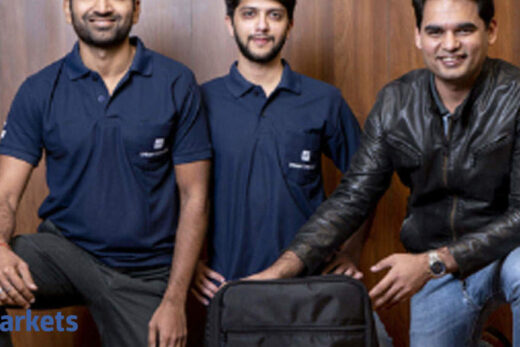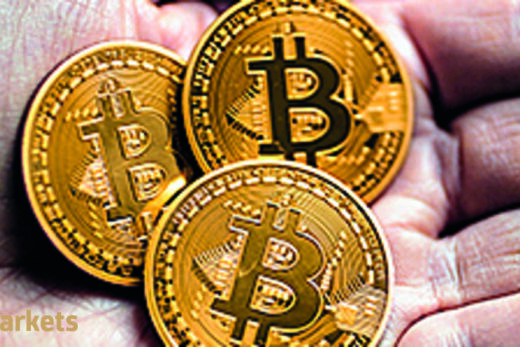Not requiring due diligence on cash sounds commonsensical, but it’s actually a highly valuable property of money everywhere. Indeed NQA, or “No Questions Asked,” is so important that Yale School of Management finance professor Gary Gorton and Federal Reserve attorney Jeffery Zhang have made it the centerpiece of their new paper, titled “Taming Wildcat Stablecoins.”
Blockchain-based stablecoins such as Tether and the upcoming Diem are the latest form of private money: Tokens that don’t offer Bitcoin-type speculative thrills but seek acceptance instead as one-to-one clones of national currencies. They could become a powerful part of the modern digital economy, provided we know how to prevent a run on them.
Trust in physical cash is supplied by regulators. Since the value of Hong Kong’s currency is pegged to the U.S. dollar, the city’s three note-issuing institutionsbuy certificates of indebtedness from the monetary authority by paying it 1 dollar for every 7.8 local units they print. Hong Kong’s 7.5 million people don’t have to ask any further questions about the worth of their money.
However, as digital stablecoins proliferate globally, NQA may not hold. That’s what happened during the free banking era in the U.S., when notes issued by a lender in Tennessee would sometimes be discounted by 20% in Philadelphia. “There was constant haggling and arguing over the value of notes in transactions,” Gorton and Zhang write. “Private bank notes were hard to use in transactions.”
Things changed because of the Civil War. President Abraham Lincoln wanted desperately to raise money for the war effort by selling bonds to newly chartered national lenders. The law Congress passed in 1863 also ushered in a uniform currency. Thereafter, banks were taxed for paying out other types of notes, driving them out of existence. The researchers argue that stablecoins are in a similar situation. In the current regulatory vacuum, they’ll struggle to become no-questions-asked money. For NQA, they’ll need the state’s blessing — and oversight. That’s been in short supply because rapid growth of the novel product has taken regulators by surprise.
But while blockchain technology is new, the economic logic of stablecoins isn’t. Buying $100 worth of these tokens is no different from a depositor parking $100 in a checking account, which preserves its value because of deposit insurance and regulatory scrutiny. Stablecoins will need a similar setup. Or, if the issuers want to avoid the cost of being a commercial bank, regulators will have to insist on transparent, one-to-one backing of liabilities with safe assets. Only then can the public reliably trust tokens claiming to mimic official units of account — dollar, euro, pound, yen, yuan and so on.
Without these safeguards, allowing stablecoins to compete with bank deposits could spawn another combustible financial product. Money market mutual funds, which have avoided being regulated as bank deposits, had to be bailed out twice in a dozen years: during the 2008 crisis, and then again last year when Covid-19 struck. Gorton and Zhang caution that if policy makers wait a decade, stablecoin issuers will become the money market funds of the future. Doubts about a token’s ability to honor its promise of 1:1 exchange into fiat money could prompt users to make a beeline for redemption. Fire sales of assets by the coin issuer could afflict other corners of finance, forcing governments “to step in with a rescue package whenever there’s a financial panic,” the researchers say.
At a little over $100 billion, the combined market value of the top five coins tracking the dollar — Tether, USD Coin, Binance USD, Dai and Terra USD — is modest at present. But that’s because stablecoin users have mostly come from cryptocurrency investors. With Visa Inc. starting to accept USD Coin to settle card payments, it’s only a matter of time before usage goes mainstream. The Diem Association, a consortium of Facebook Inc. and other companies and nonprofits, has tied up with a bank. Diem’s dollar stablecoin can thus be launched from within the the U.S. banking system, and Facebook’s enormous reach could make it take off. Given the rapid pace at which the landscape is changing, Treasury Secretary Janet Yellen is right to tell U.S. regulators to hurry up and put in place a regulatory framework for stablecoins.
If the rules strike the right balance between supporting innovation and maintaining stability, the U.S. may not need to follow China into offering an official digital currency, a possibility that a top Fed official raised recently.
Will the Fed choose regulated private stablecoins, a central bank-issued digital currency, or both? Even as the rest of the world awaits answers, some decisions should be made right away. Tether, the most used dollar coin, is owned by Hong Kong-based iFinex Inc. Every country could potentially have a crypto or fintech firm mirror their official unit of account. Trying to regulate entities once they’re already too big to fail would be pointless.
Money in the 21st century may not need to be official. But it still has to be no-questions-asked, like the Hong Kong dollars in my wallet. That’s a power that only regulators can bestow. They should use it well.



